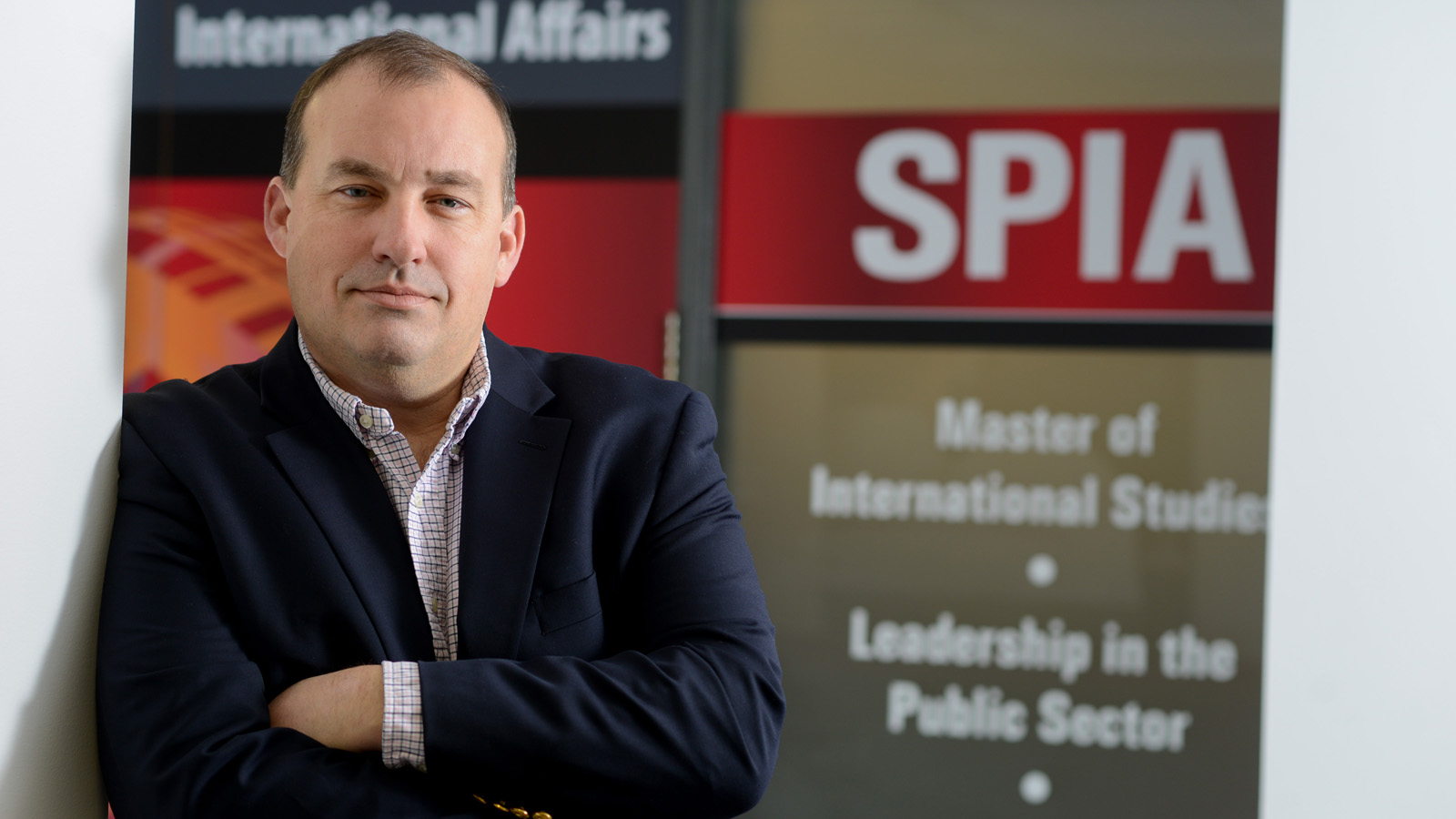Training the Next Generation of Nuclear Security Experts

Editor’s note: This is an excerpt from an article originally published in NC State’s Results magazine.
The Consortium for Nonproliferation Enabling Capabilities does crucial work in training the next generation of experts in nuclear security policy. One of the leaders of that effort is Bill Boettcher, associate professor of political science in NC State’s School of Public and International Affairs. Boettcher is a nuclear security and nonproliferation policy expert whose work with CNEC focuses on curriculum development and teaching.
“We’re looking to produce the people who do the work of nonproliferation,” Boettcher says. “We want to turn out nuclear engineers who know enough about policy to do nonproliferation work in the national labs or at the Department of Energy. We also want to develop policy students who know enough about the technology involved that they can be conversant as they work in the State Department or elsewhere in the policy community.”
The National Nuclear Security Administration has recognized that people in the nuclear security and nonproliferation field have a “haphazard but eventually interdisciplinary” approach to their topics — and a lot of those people are retiring, Boettcher explains. The agency wants CNEC to train the next generation of professionals in the field to be interdisciplinary by design. To that end, Boettcher and his CNEC colleagues have created a brand-new graduate certificate in nuclear nonproliferation science and policy, which admitted its first students in spring 2017.
Education, detection, simulation, modeling, analysis — CNEC presses the nonproliferation fight on all these fronts because that’s what the challenge requires, says Yousry Azmy, Distinguished Professor of Nuclear Engineering at NC State and director of CNEC.
“Nonproliferation is a broad problem,” he says. “That’s why these areas within the consortium don’t live in silos; we communicate across them. All of these aspects feed into a decision-making machine that someone is going to have to use to say, ‘this is a conclusion. This is what we need to do to combat nuclear proliferation.’”
Funded by a $25 million NNSA grant awarded to NC State in 2014, CNEC’s partners comprise seven universities and four national laboratories, all collaborating to stop the illegal proliferation of nuclear weapons. Click here for more information on the consortium.


